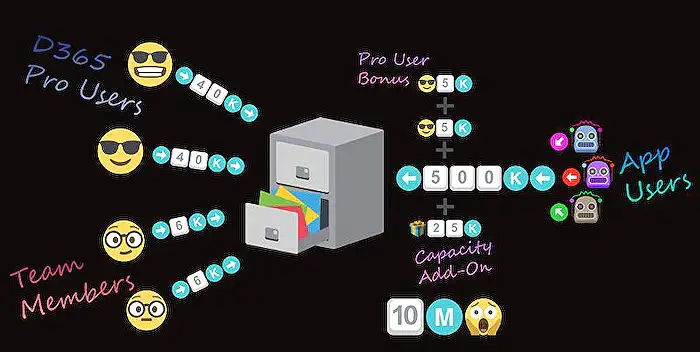- All of Microsoft
Defender EASM: Your Shield Against External Cyber Threats Today
Microsoft Defender, Copilot, Purview Data Loss Prevention, Microsoft XDR, Microsoft Sentinel
Key insights
- Microsoft Defender External Attack Surface Management (EASM) offers organizations a way to monitor and secure their external digital assets, giving security teams a real-time view of what attackers might see.
- Asset Discovery is central to EASM, as it automatically finds and maps both managed and unmanaged resources like domains, IP addresses, hosts, email contacts, ASNs, and Whois data. This helps uncover hidden or unknown assets that could be at risk.
- Risk Prioritization allows IT teams to classify exposures based on their potential impact. This ensures the most critical vulnerabilities are addressed first, reducing the chance of successful attacks.
- Multicloud Support means EASM can scan across multiple cloud services and hybrid environments. This makes it suitable for businesses using complex IT setups with assets spread over different platforms.
- AI-Driven Insights with Copilot for Security use generative AI to quickly analyze risks found during scans. Teams can use natural language queries in Copilot to generate actionable inventory checks and speed up threat response.
- The integration of EASM with Microsoft Defender XDR and Sentinel provides a unified approach to security management. Organizations benefit from continuous monitoring, dynamic asset inventories, and faster remediation of threats before attackers can exploit them.
Introduction: Understanding Microsoft Defender External Attack Surface Management
Microsoft Defender External Attack Surface Management (EASM) is rapidly becoming an essential component in the cybersecurity strategies of organizations worldwide. In a recent YouTube video by AzureVlog, Microsoft MVP Jeroen Niesen provides a thorough walkthrough of EASM, highlighting its significance, deployment process, and practical benefits. As businesses increasingly face external threats, the need for robust tools to monitor and secure their digital perimeters has never been more urgent.
Through this video, viewers gain a clear understanding of how EASM offers a comprehensive view of their digital footprint, allowing security teams to proactively identify and address vulnerabilities. The tutorial is particularly tailored for security analysts, IT architects, and technical teams seeking to reduce external risk and stay ahead of potential attackers.
What Sets Defender EASM Apart?
At its core, Defender EASM distinguishes itself by providing continuous discovery and mapping of an organization's external assets. Unlike traditional tools that focus primarily on internal environments, EASM delivers visibility into both managed and unmanaged resources, such as domains, IP blocks, and email contacts. This external perspective is crucial, as attackers often exploit overlooked or unknown assets.
Moreover, the tool leverages proprietary discovery technology, starting with known legitimate assets—referred to as discovery seeds—and recursively searching for related infrastructure. This process uncovers not just current assets but also historic ones, giving organizations an evolving record of their external web presence. Consequently, businesses can identify shadow IT and other vulnerabilities that may otherwise remain hidden.
Deployment and Integration: Step-by-Step Onboarding
The video by AzureVlog outlines a straightforward onboarding process, making it accessible even for teams new to the platform. Viewers learn how to deploy a Defender EASM workspace, set up asset discovery, and configure labels and policies for effective management. The clear, step-by-step instructions help organizations start their first scan within minutes, reducing barriers to adoption.
Importantly, Defender EASM integrates seamlessly with other Microsoft security products, including Defender XDR and Microsoft Sentinel. By consolidating findings and workflows, these integrations empower security teams to respond more rapidly to identified risks. However, balancing integration with existing systems can be challenging, especially in complex, multi-cloud environments. Teams must carefully plan deployments to avoid overlaps and ensure data consistency.
AI-Driven Insights and Multicloud Support
A notable advancement in Defender EASM is its integration with generative AI, particularly through Copilot for Security. This AI-driven approach enables faster analysis of attack surface risks, transforming vast datasets into actionable insights. As a result, security professionals can prioritize exposures based on risk and expedite remediation efforts.
Additionally, Defender EASM supports multicloud and hybrid infrastructures, which is vital for modern organizations operating across different platforms. While this broad compatibility enhances security coverage, it also introduces complexity when consolidating asset inventories from disparate sources. Therefore, organizations must weigh the benefits of comprehensive visibility against the operational challenges of managing diverse cloud environments.
Balancing Tradeoffs and Addressing Challenges
While Defender EASM offers significant advantages, it is important to recognize the tradeoffs involved. Enhanced visibility can sometimes lead to information overload, especially for organizations without mature security operations. Prioritizing risks effectively and filtering out noise are ongoing challenges that require thoughtful configuration and skilled personnel.
Moreover, integrating EASM with legacy systems or non-Microsoft environments may require additional customization. Teams must also stay vigilant about changes in their digital landscape, as new assets or services can quickly alter the attack surface dynamics. Ultimately, a successful EASM deployment hinges on continuous monitoring, regular policy updates, and ongoing staff training.
Conclusion: Securing the Digital Frontier
In conclusion, AzureVlog’s video on Microsoft Defender EASM offers valuable guidance for organizations seeking to strengthen their external security posture. By delivering real-time, AI-enhanced visibility across all digital assets, Defender EASM empowers teams to detect vulnerabilities before attackers can exploit them. However, achieving optimal results requires careful planning, integration, and a proactive approach to asset management.
As cyber threats continue to evolve, tools like Defender EASM will play an increasingly vital role in helping organizations protect what attackers see—and ultimately, stay one step ahead in the ongoing battle for digital security.

Keywords
Setup Defender EASM, External Attack Surface Management setup, Microsoft Defender EASM guide, EASM security best practices, Defender external attack surface protection, how to configure EASM Microsoft Defender, cybersecurity with Defender EASM, manage external attack surface Microsoft
